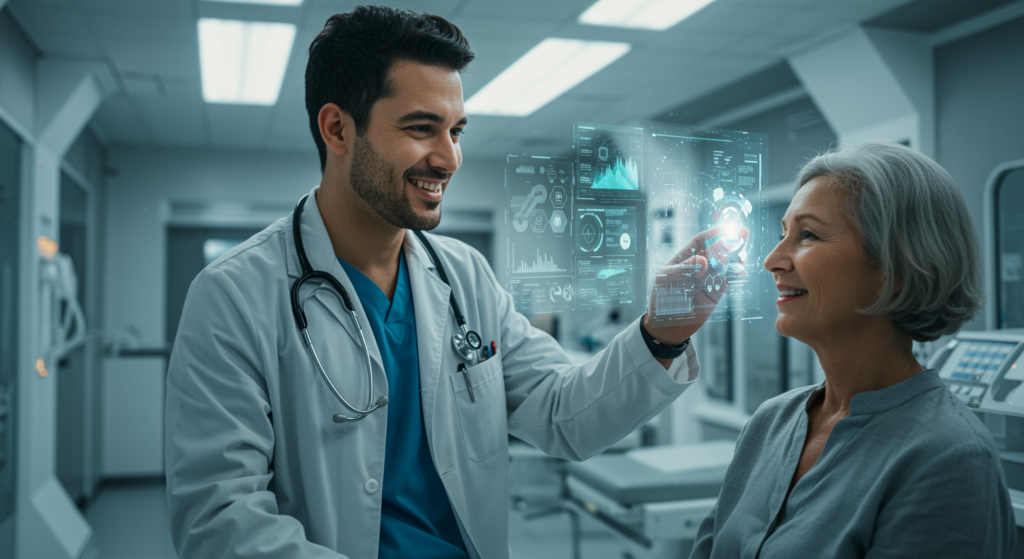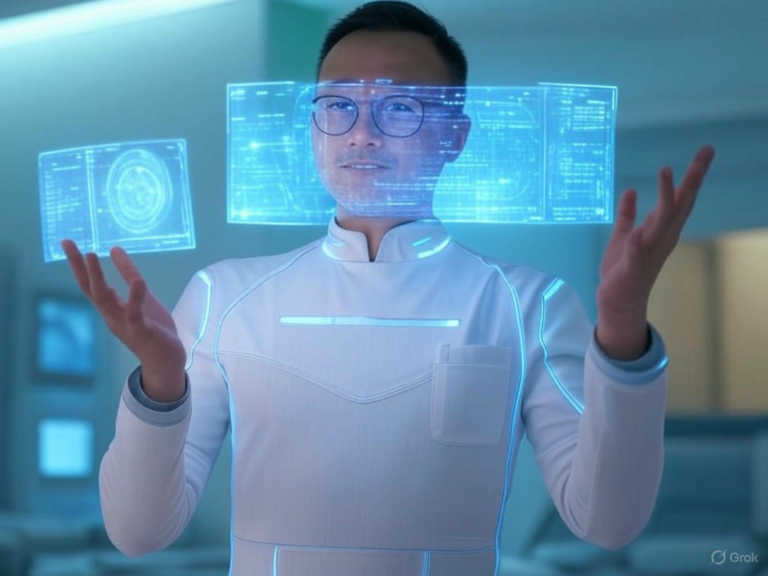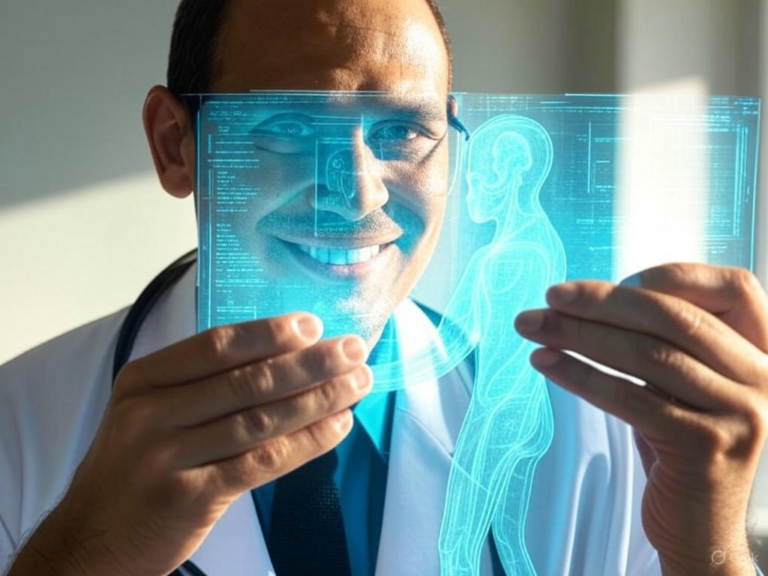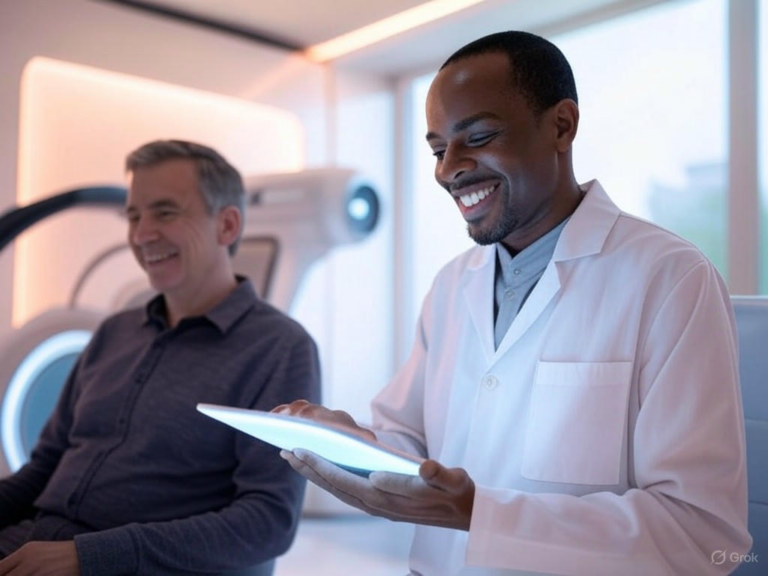
Artificial Intelligence in Medicine: Key Benefits and Applications
Introduction
Imagine a world where technology not only assists doctors but actually enhances every aspect of patient care. That’s the reality unfolding with artificial intelligence in medicine, a field rapidly evolving to tackle healthcare’s biggest challenges. From spotting diseases early to customizing treatments, AI is making strides that could save lives and streamline operations, all based on cutting-edge research and practical examples we’ll dive into here.
Exploring the Key Benefits of Artificial Intelligence in Medicine
1. Boosting Diagnostic Accuracy with AI
Have you ever wondered how AI could catch what the human eye misses? In diagnostics, artificial intelligence in medicine shines by sifting through mountains of data faster than ever. Machine learning models analyze X-rays, CT scans, and patient records to detect subtle signs of conditions like breast cancer or heart issues, often matching or surpassing expert radiologists.
For instance, AI tools can predict sepsis risks with high accuracy, allowing for quicker interventions that boost survival rates. This not only cuts down on errors but empowers clinicians to make smarter decisions, drawing from studies like one from Harvard Medical School.[1]
2. The Rise of Personalized Medicine Through AI
What if treatments were as unique as fingerprints? That’s the promise of artificial intelligence in medicine, which tailors healthcare based on individual genetics, lifestyle, and medical history. AI algorithms suggest drug regimens that work best for you, minimizing side effects and maximizing results.
Think about robotic surgeries guided by AI or adaptive therapies that evolve with your needs—it’s already happening. A key study highlights how this approach shifts healthcare from generic solutions to truly individualized care, improving outcomes and patient satisfaction.
3. Preventing Diseases Before They Start with AI
Could AI be the key to staying ahead of illnesses? Absolutely, as artificial intelligence in medicine uses big data to forecast risks for conditions like diabetes or infectious outbreaks. By monitoring wearables and social media trends, it identifies at-risk groups early.
This proactive strategy means doctors can intervene before problems escalate, potentially cutting hospital costs and enhancing public health. It’s a game-changer, backed by research showing real-world predictions saving lives.
4. Streamlining Everyday Healthcare Operations
Tired of administrative hassles eating into patient time? Artificial intelligence in medicine automates tasks like scheduling, billing, and record management, freeing up professionals to focus on what matters most.
Optimized resource use reduces inefficiencies, making healthcare smoother and more cost-effective. Hospitals are already seeing the benefits, with AI handling the mundane so staff can prioritize care.
5. Speeding Up Drug Discovery with AI Innovation
Drug development can take years and billions—until AI steps in. Here, artificial intelligence in medicine predicts molecular interactions and identifies promising candidates quickly, slashing time and costs.
From simulating protein structures to improving clinical trials, AI accelerates breakthroughs. This means faster access to life-saving treatments, as evidenced in recent advancements like COVID-19 vaccines.
Real-World Applications of Artificial Intelligence in Medicine
AI in Diagnostic Breakthroughs
In the realm of diagnostics, artificial intelligence in medicine is revolutionizing how we spot issues early. Deep learning algorithms examine images from mammograms or lung scans with precision, catching cancers that might otherwise go unnoticed.
This technology eases the burden on specialists and addresses shortages, leading to faster, more accurate diagnoses. For example, AI systems have proven effective in detecting COVID-19 lesions, as noted in leading health studies.
Virtual Assistants for Everyday Health Support
Ever need a doctor at 2 a.m.? Virtual health assistants powered by AI offer round-the-clock help, from reminders to remote monitoring. They track vital signs via wearables and alert you to potential problems.
This boosts engagement and allows clinicians to manage more patients efficiently. It’s like having a personal health coach, enhancing chronic disease management and overall satisfaction.
Predictive Analytics: AI’s Role in Smarter Decisions
What if AI could foresee complications before they occur? Through predictive analytics, artificial intelligence in medicine supports decisions by analyzing data in real time, reducing errors and suggesting optimal treatments.
Hospitals use these systems to anticipate issues like infections post-surgery, combining AI with human expertise for better results. It’s a collaborative tool that’s proving invaluable in daily practice.
Advanced Imaging Enhanced by AI
AI takes medical imaging to new heights, detecting tiny changes in tissues for early disease identification. It automates tumor measurements and integrates with genomic data for deeper insights.
This precision helps in conditions ranging from eye diseases to cancers, making diagnostics more reliable and actionable.
AI’s Impact on Drug Development and Genomics
In genomics, artificial intelligence in medicine decodes complex data to predict mutations and speed vaccine development. It supports personalized therapies based on genetic profiles, paving the way for tailored treatments.
From simulating viral changes to advancing precision medicine, AI is at the forefront of therapeutic innovation.
Future Trends in Artificial Intelligence in Medicine
| Timeline | Key Applications | Expected Impact |
|---|---|---|
| Short Term (0-5 Years) |
|
|
| Medium Term (5-10 Years) |
|
|
| Long Term (>10 Years) |
|
|
The future of artificial intelligence in medicine promises connected, predictive care that could redefine health entirely.
Navigating Challenges in AI for Healthcare
Ensuring Data Privacy and Security
With great data comes great responsibility—AI’s reliance on sensitive information demands strong security to protect patients. Regulations must evolve to keep pace, preventing breaches that could erode trust.
Addressing Ethical and Regulatory Issues
AI decisions need to be transparent; no one wants a black box in medicine. Ongoing discussions among experts ensure ethical standards, balancing innovation with accountability.
Conclusion
As we’ve seen, artificial intelligence in medicine is not just a trend—it’s a transformative force improving diagnostics, prevention, and more. What do you think about these advancements? Share your experiences in the comments, explore our related posts on tech in health, or spread the word to spark more conversations.
References
[1] Benefits of Latest AI Technologies for Patients and Clinicians. Harvard Medical School. Source
[2] PMC Article on AI in Healthcare. NCBI. Source
[3] AI Applications in Medicine. Xiahe Publishing. Source
[4] Precision Medicine and AI. PMC NCBI. Source
[5] AI Benefits in Medicine. Telefónica. Source
[6] AI Writing Tips. RyRob. Source
[7] AI in Healthcare. Cleveland Clinic. Source
[8] SEO for AI Content. OVRDRV. Source
artificial intelligence in medicine, AI healthcare benefits, medical AI applications, AI diagnostics, personalized medicine, AI in diagnostics, predictive analytics in healthcare, precision medicine AI, drug discovery AI, AI healthcare challenges







